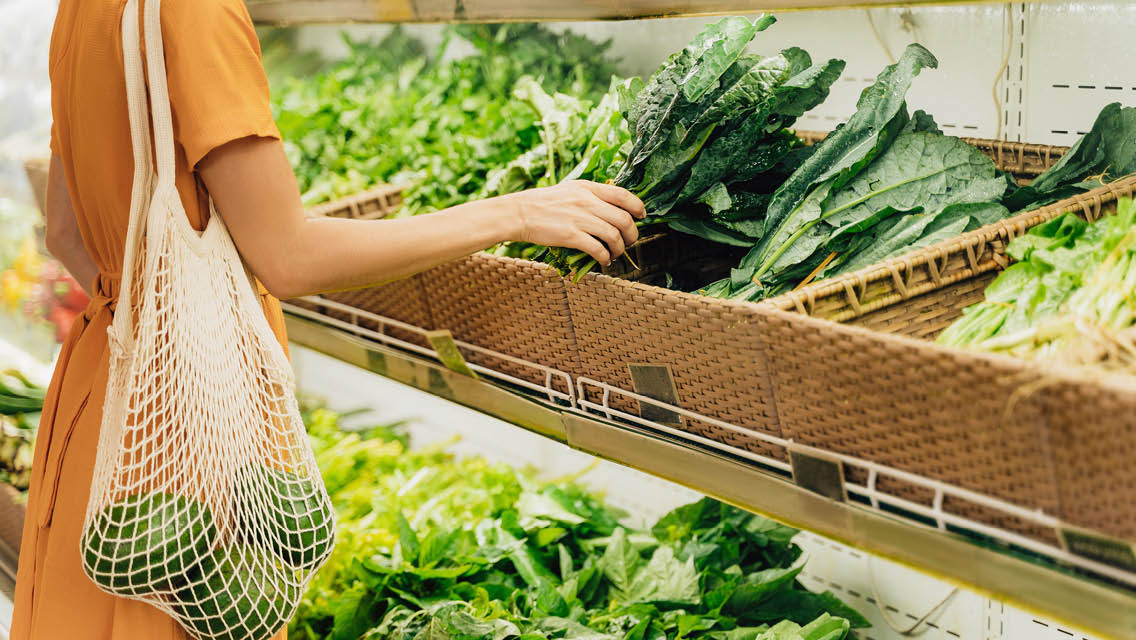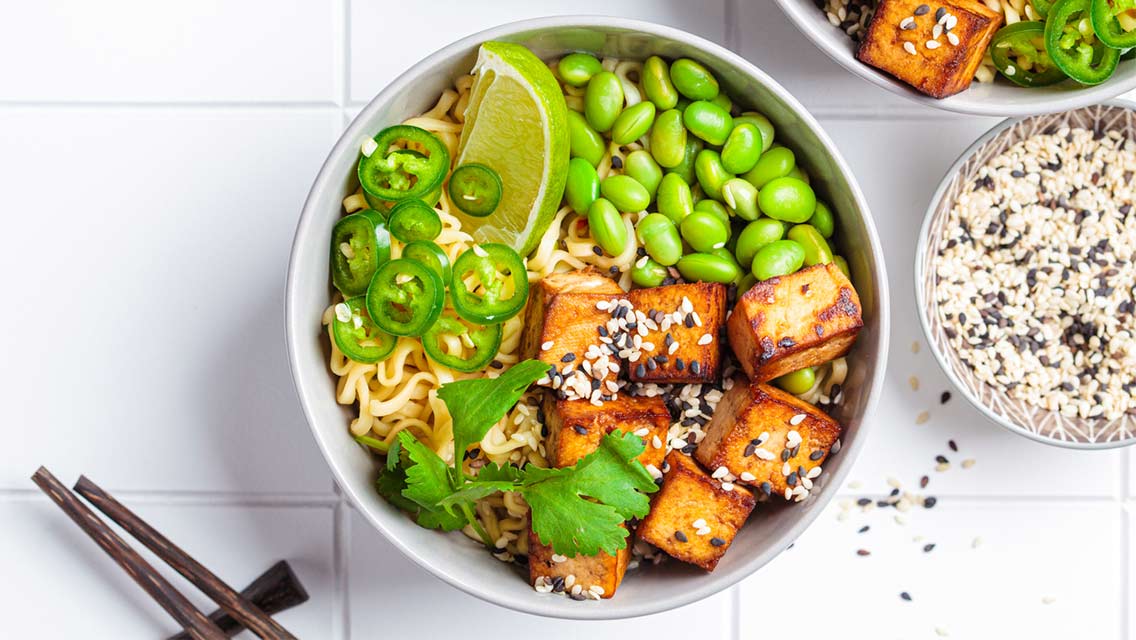One of the many benefits of consuming more plant foods is that this tends to reduce the amount of animal foods one eats. Commercial livestock practices often lead to lower-quality meat, and no meat can provide the same abundance of phytonutrients as plants.
“The great thing about plant protein is that you aren’t just getting protein,” says Will Cole, IFMCP, DNM, DC. “You are getting micronutrients that the body needs to be healthy but that are often missing from our diet.”
Even if you still enjoy some animal foods, consuming more plant protein offers many benefits, including these:
1) Reduced risk of chronic illness.
Evidence shows that swapping in plant proteins for at least some of the meat in your diet (especially processed meat, such as bacon) can help lower blood pressure and may prevent several types of cancer, including colon, stomach, prostate, and breast cancer. It also assists with weight management.
“Following a plant-based diet doesn’t just dramatically reduce the risk of chronic disease but promotes health and longevity,” says functional dietitian and sports nutritionist Barbara Lewin, RDN, CSSD, LDN, quoting research from the Blue Zones, a group that studies the habits of the longest-lived populations around the world.
2) More years to your life.
A study published in PLOS Medicine in 2022, in which researchers presented a calculator for estimating the impact of food on longevity, determined that young American adults could lengthen their life expectancy by more than a decade by replacing most of the meat in their diets with legumes, whole grains, and nuts.
Researchers also projected that older adults could benefit from the protein swap: If they added more plant-based proteins and reduced their meat consumption — even at age 60 — they might increase their life expectancy by eight to nine years.
Even small shifts offer big rewards. When Japanese researchers tracked the diets of nearly 71,000 adults for an average of 18 years, they found that subjects who replaced just 3 percent of the red meat in their diet with plant protein were 34 percent less likely to die of any cause, 39 percent less likely to die of cancer, and 42 percent less likely to die of heart disease.
3) Earth support.
Growing plants generally requires less land, water, and energy than raising animals on conventional meat and dairy farms, especially when measured against concentrated animal-feeding operations (CAFOs). Compared with the resources needed to grow 1 pound of beans, producing 1 pound of beef requires roughly 14 times more land, eight times more water, nine times more fertilizer, and eight times more pesticides.
Then there are the greenhouse-gas (GHG) emissions. Beef makes up 36 percent of all food-related emissions in the United States, and the meat and dairy industries generate 14.5 percent of total human-caused GHG emissions.
Studies show that adopting a vegetarian diet that includes some eggs and dairy can drop an individual’s diet-related GHG emissions by approximately 35 percent; adopting a vegan protocol can reduce it by approximately 50 percent.
“A diet that optimizes human health is simultaneously protective of the environment — it’s not often you see a consensus among so many health professionals and organizations like this,” says Heidi Lynch, PhD, RDN, whose research at San Diego’s Point Loma Nazarene University focuses on plant-based diets, athletic performance, and environmental sustainability. “What’s good for one is good for the other.”
This was excerpted from “How to Get Enough Protein from a Plant-Based Diet” which was published in the September 2022 issue of Experience Life.





This Post Has 0 Comments